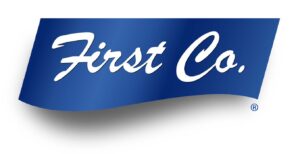Introduction
Maintaining HVAC systems in multi-unit properties is crucial for ensuring tenant comfort and reducing energy costs. Regular maintenance can prevent unexpected breakdowns, prolong the life of the equipment, and improve air quality. By taking proactive steps, property managers can avoid costly repairs and ensure that the HVAC systems operate efficiently year-round.
In multi-unit properties, HVAC systems face higher demands due to the larger number of occupants and varied usage patterns. This means that issues like clogged filters, incorrect system calibration, and wear and tear are more likely to occur. Addressing these issues promptly through regular maintenance helps maintain consistent performance and tenant satisfaction.
Scheduling Regular Inspections and Tune-Ups
Regular inspections and tune-ups are vital for keeping HVAC systems in top condition. These routine checks help identify minor issues before they become major problems. Scheduling these inspections at least twice a year, ideally before the peak heating and cooling seasons, ensures that the system is ready to handle increased demands.
During an inspection, technicians will examine all components of the HVAC system, including the thermostat, ductwork, and mechanical parts. They will look for signs of wear and tear, leaks, and other potential issues. By catching these problems early, we can take corrective action to prevent system failures and costly repairs.
Tune-ups go hand in hand with inspections. A typical tune-up involves cleaning and lubricating components, checking refrigerant levels, and ensuring that the system operates efficiently. This process improves system performance and extends its lifespan, which saves money in the long run.
Importance of Air Filter Replacement and Cleaning
Air filters play a crucial role in maintaining air quality and system efficiency. Filters trap dust, pollen, and other airborne particles, preventing them from circulating through the HVAC system and into the air. Over time, these filters can become clogged, reducing airflow and forcing the system to work harder, which increases energy consumption.
Regularly replacing or cleaning air filters is an essential maintenance task. In most multi-unit properties, filters should be checked monthly and replaced every 1-3 months, depending on usage and filter type. High-efficiency particulate air (HEPA) filters might last longer but still require regular inspection.
Clean filters ensure that the HVAC system runs efficiently, maintains good indoor air quality, and reduces the risk of system breakdowns. Moreover, tenants are likely to notice the improved air quality, which can lead to higher satisfaction and fewer complaints. By making air filter maintenance a priority, property managers can significantly enhance the performance and reliability of their HVAC systems.
Ensuring Proper System Calibration and Efficiency
Proper system calibration is essential for the efficient operation of HVAC units in multi-unit properties. Calibration ensures that each component of the system works harmoniously, providing optimal comfort without overworking any part. Incorrect calibration can lead to imbalanced temperatures, which affects tenant satisfaction and increases energy costs.
To achieve proper calibration, it’s important to regularly check and adjust thermostats and sensors. This ensures the system maintains the desired temperature without cycling on and off too frequently. Simple actions, like calibrating thermostats to ensure accuracy, can prevent unnecessary wear and tear on the system.
Additionally, inspecting and sealing ductwork is crucial. Leaks or blockages in the ducts can lead to uneven distribution of air and reduced system efficiency. Technicians should use tools like manometers to check for pressure imbalances and make any necessary adjustments. Ensuring the entire HVAC system is properly calibrated will result in consistent performance and energy savings.
Implementing Proactive Measures to Prevent Common Issues
Preventing common HVAC issues before they arise is key to maintaining a smooth operation in multi-unit properties. Proactive measures can include regular system checks and addressing any potential issues before they escalate.
1. Inspect Refrigerant Levels:
Adequate refrigerant levels are necessary for efficient cooling. Regular inspections can detect leaks early, preventing system failure and maintaining optimal performance.
2. Clean Coils and Blowers:
Dirty coils and blowers can reduce the efficiency of an HVAC system. Regularly cleaning these components keeps the system running smoothly and reduces energy consumption.
3. Monitor System Performance:
Using performance monitoring tools can help identify small issues before they become major problems. Monitoring metrics such as temperature, airflow, and energy usage provides insight into the system’s health.
4. Maintain Clear Ventilation:
Ensure that vents and ducts are clear of obstructions. Regularly check for blockages, especially in common areas and corridors, to maintain proper airflow.
5. Educate Tenants:
Inform tenants about simple practices like keeping vents unblocked and reporting any irregularities in heating or cooling. Tenant awareness can help identify issues early on.
By implementing these proactive measures, property managers can prevent common HVAC issues, ensuring a hassle-free and efficient operation.
Conclusion
Maintaining HVAC systems in multi-unit properties is essential for ensuring tenant comfort, system efficiency, and cost savings. Regular inspections, timely air filter replacement, correct system calibration, and proactive measures can prevent common issues and prolong the lifespan of HVAC units. Through diligent maintenance, we can ensure the systems run smoothly, providing a pleasant living environment for all tenants.
At First Co., we specialize in multi-occupant HVAC solutions for Texas clients. Our expert team is dedicated to helping you maintain and optimize your HVAC systems. Contact us today to learn more about our comprehensive maintenance services and how we can support your property’s specific needs. Let’s work together to keep your HVAC systems in top shape.

